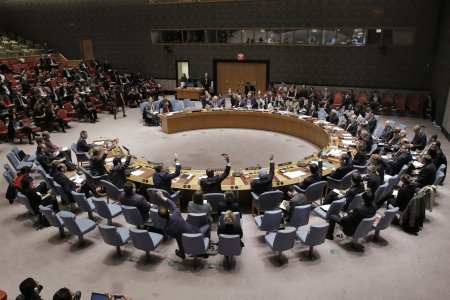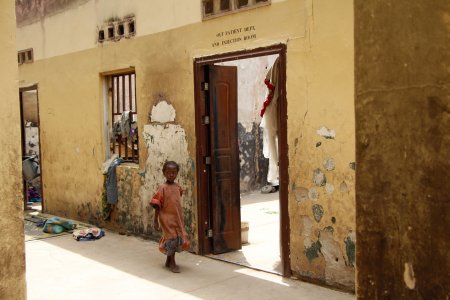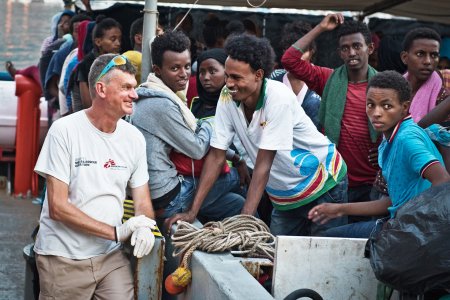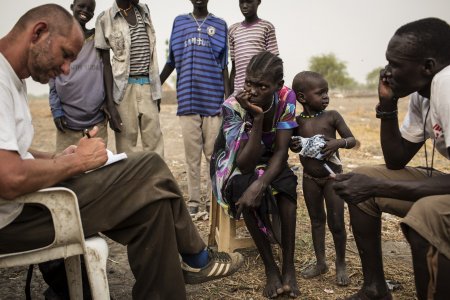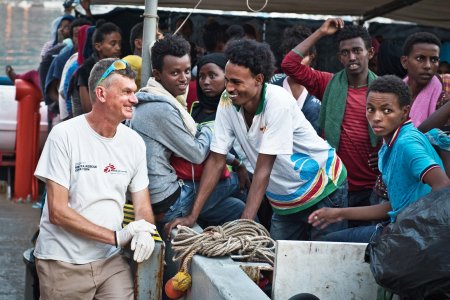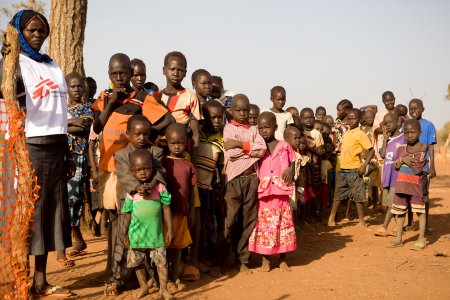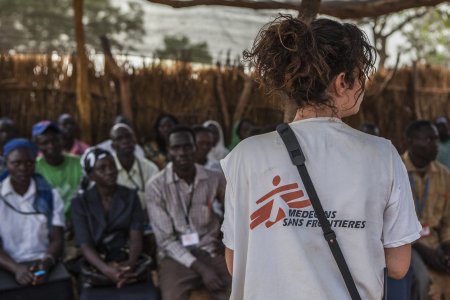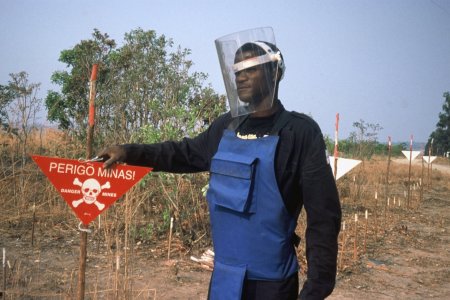How can aid workers help war victims without falling prey to, or becoming complicit with, their persecutors?
Humanitarian organisations have an ambiguous relationship with the violence of war. Seeking to relieve its severity, they contribute to its continuation to varying degrees while subjecting themselves to becoming targets. This collection of studies explores the way aid workers attempt to “humanise” war and face the risk of becoming victims of or complicit in the war.
Humanitarian Aid, Genocide and Mass Killings. MSF, The Rwandan Experience, 1982-97
Interview with Jean-Hervé Bradol and Marc Le Pape. The book is published by Manchester University Press and will be out in January 2017.
Humanitarian diplomacy, a fig leaf for extreme violence
Interview with Michaël Neuman and Fabrice Weissman, research directors at Crash. On Wednesday 28 September, MSF is invited to attend a UN Security Council briefing on resolution 2286, adopted in May 2016, which strongly condemns attacks against medical personnel and establishments in conflict situations.
Humanitarian Emergency in Northeast Nigeria
Jean-Hervé Bradol, director of studies at MSF-CRASH, discusses the humanitarian emergency left in the wake of Boko Haram's occupation of Borno State, Nigeria.
Occupational hazards
In recent years, fear-mongering reports based on hard data have been describing a world of ever-increasing danger for aid workers. The book "Saving lives and staying alive" explores this observation and compares it with MSF's experience of working in particularly dangerous regions.
ATHA Podcast: Michaël Neuman about "Saving Lives and Staying Alive"
In "Saving Lives and Staying Alive: Humanitarian Security in the Age of Risk Management" Michaël Neuman and his colleague Fabrice Weissman analyze some of the drivers of professionalization in the context of humanitarian security and its subsequent impact on humanitarian practices through a collection of MSF case studies.
Data are not dangerous: A response to recent MSF CRASH critiques
Michaël Neuman warns that misleading data are suggesting humanitarian aid work has become more dangerous, taking particular aim at the Aid Worker Security Database (AWSD) for helping perpetuate this myth.
The numbness of numbers
We welcome Abby Stoddard, Katherine Haver and Adele Harmer's response to our critical article on the production and the use of security data in the humanitarian sector and to our book in general. In a field that has been very much lacking debate, if not controversies, we're extremely glad to see a various range of readers engaging in the discussion.
A response to Andrew Cunningham and Chris Lockyear’s review
Michaël Neuman, co-editor of "Saving Lives and Staying Alive. Humanitarian Security in the Age of Risk Management" responds to Chris Lockyear and Andrew Cunningham's review of the book.
A response to Saving Lives and Staying Alive
Andrew Cunningham, currently an independent humanitarian researcher and analyst and Chris Lockyear, the Director of Operations for ACF USA and a former Operations Manager for MSF Operational Center Amsterdam (MSF-OCA), have sent the following response to "Saving lives and Staying alive". Let the debate live!
Is aid work really more dangerous than ever? Flawed studies won’t tell us
Since the 1990s and the rise of conflicts in West Africa, Somalia, Chechnya, the former Yugoslavia and Africa's Great Lakes region, humanitarian organisations have been warning of greater insecurity for their staff. These observations are bolstered by surveys aimed at objectively quantifying violence against humanitarian workers.
The oldest war crime in the book ?
This post was published as a reaction to the attack on the MSF hospital in Kunduz, Afghanistan, that took place on October 3rd, 2015.
Transitioning to national ownership : the case of Humanitarian Mine Action
Should eventual transition from internationally managed programmes to national ownership always be a relevant and/or realistic goal?


